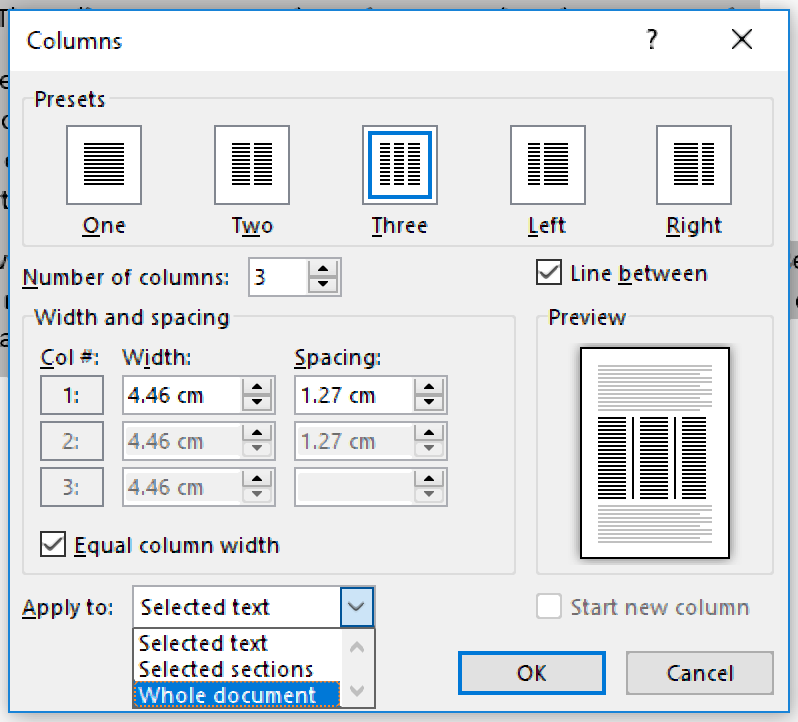-
2-minute read
-
4th August 2018
Microsoft Word Tips: Writing in Columns
Not a fan of big blocks of text on the page? Then good news, friend! Microsoft Word offers a simple way to format text in a series of columns. How exactly does this work? Let us explain.
Why Use This Formatting Style?
It is standard to use columns of text in some document types (e.g. newsletters or magazine articles). Studies have also shown that lines around 50-60 characters long are the easiest to read, so column formatting can help your reader (especially if printing something A4 sized or above).

This formatting style can therefore boost readability and help to ensure professional presentation.
Columns in Microsoft Word
But how do you apply this in practice? To format existing text, you simply:

- Highlight the text you want to format
- Go to Layout > Page Setup on the main ribbon in Microsoft Word
- Select Columns and click the number and column style required
The selected text will then be formatted as a series of columns. These default settings are fine in most situations. For more control over how text is presented on the page, however, you can:
Find this useful?
Subscribe to our newsletter and get writing tips from our editors straight to your inbox.
Subscribe to Beyond the Margins and get your monthly fix of editorial strategy, workflow tips, and real-world examples from content leaders.
- Follow the instructions above to open the Columns dropdown menu
- Click More Columns… to open a new window
In the window that opens, you will be able to choose:
- How many columns to use per page
- Whether to include a vertical line between columns
- How wide to make each column
- Which parts of the document to format

This final option is important. If you want to use column formatting throughout a document, you can select Whole Document. The other options (e.g. Selected Text or This Point Forward) will add a section break before and/or after the point where you’ve changed the formatting style.
Keep this in mind if you are using other formatting that depends on sections (e.g. chapter headers). Unless the sections are linked, any formatting you use may only be applied to the current section.




